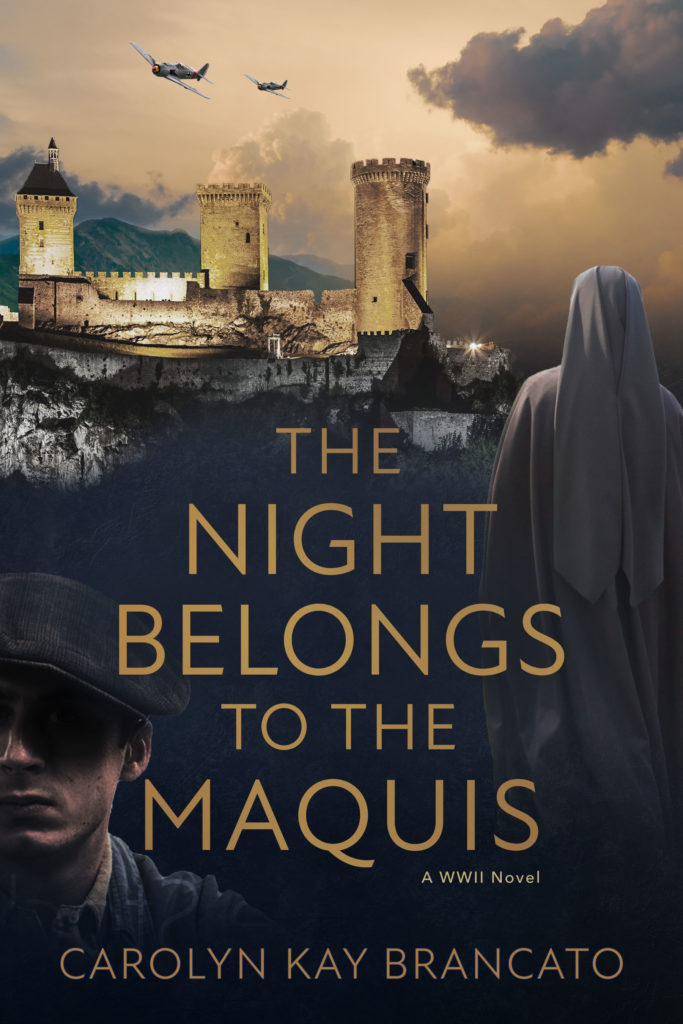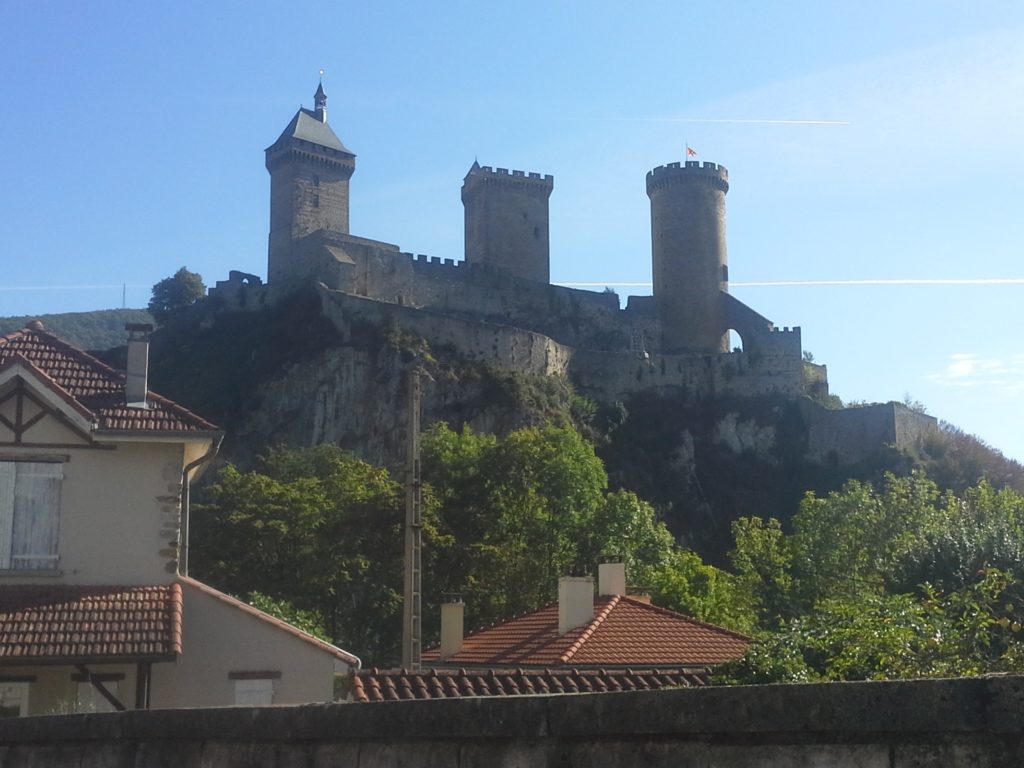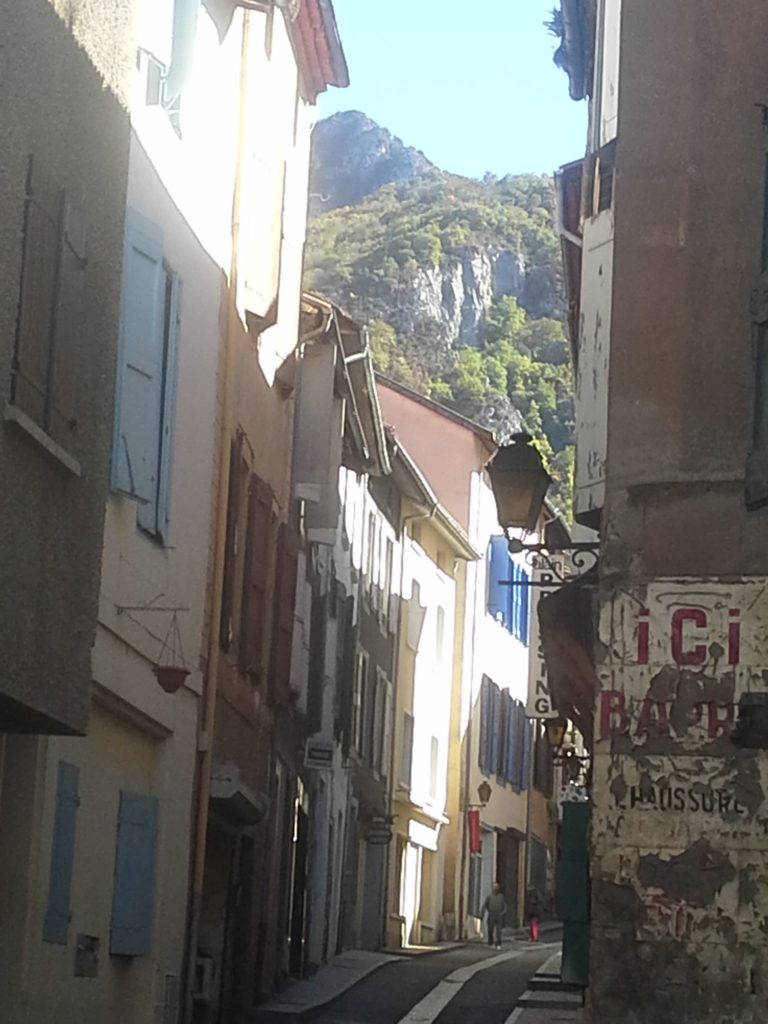
The Reviews are in!
The Berkshire Eagle. December 1, 2021. "A Powerful Heartbreaking Novel." "A tale of heroism accompanied by tragedy and loss."
"...Carolyn Kay Brancato's new novel "The Night Belongs to the Maquis," is set in France, a country that experienced the full horrors of a brutal Nazi occupation. While it is a tale of heroism, it is not the generally sunny heroism of Hollywood films about the war. The heroism is accompanied by tragedy and loss, the occasional victories tempered by the sobering reality of what war and occupation does to a land and its people.
The novel is set predominantly in the village of Foix, which in fact exists in the Pyrenees of Southern France, not far from the border of Spain. It's the fall of 1939 and while the war seems far off and many in the rural village are in denial of its reality, the storm clouds are clearly gathering."
At the core of the story is 20-year-old Sylvie, a farmer with an independent streak and a passion for Jean, a neighboring farmer. That passion is barely consummated when he is called off to defend France in the Ardennes. As the Germans advance with unthinkable speed, Jean goes missing and is reported dead....[and] Foix is buried under a crush of refugees fleeing southward, many from as far away as Poland, many of them lost children, and of course, many of them Jewish. They also bear witness to the Nazi occupation of Foix in all its arrogance and casual brutality."
The Maquis of the title are the French Resistance, and "The Night Belongs to the Maquis" is their battle cry. Foix's proximity to Spain makes it a natural escape route for downed Allied airmen and others gathered by the Maquis, and given what they have witnessed, Sylvie and Helene are eager to join their cause, although at great risk. The cause of the Maquis is righteous, but these are hard men, and what they ask of [ a nurse named ] Helene when the Nazi officer heading the occupation takes up quarters in Helene's home is as unthinkable as it is cruelly logical."
Brancato doesn't spare readers the brutality of this corner of the war over the novel's five-year period, whether it is the occupation of Foix, or an excursion to the war zone, where we enter prison camps and see crematoriums at work. A strong supporting cast of characters reveal how these traumatic experiences can bring out unexpected strengths and weaknesses. The spoiled Isobel finds strength after her parents are taken away by the Nazis and she joins the Resistance, while Sylvie's younger brother Etienne dangerously succumbs to rage."
In an author's note, Brancato reveals that she has visited Foix, studied the landscape, and met with three members of the Resistance. "The Night Belongs to the Maquis" is a work of fiction but Brancato's research lends it considerable verisimilitude. The result is a powerful, heartbreaking novel that does justice to those who suffered under the boot of Nazi Germany and found the strength to fight their way out from underneath it."
Richmond Record. Volume XIX, No. 7 - November 2021. "Ordinary People Rise to Extraordinary Heights"
"...reminiscent of an iconic French tapestry...Brancato patiently weaves together the experiences of the heroine Sylvie Laget and those she loves. The end result achieves Brancato's goal of creating a work of art that challenges the reader to look clearly at the atrocities of World War II, so the horrors of tyranny and fascism are not unknowingly recreated today.
"....Brancato's clear narrative voice does not falter as the experiences of her characters bring to life much of the research she did around WWII....the small town of Foix, France...provides the backdrop for the book, and it was here that Brancato interviewed members of the Maquis, or French Resistance...These first-hand accounts along with other post-war testimonies gave Brancato the details she needed to create authentic characters.
It is September 1939 in the village of Foix, which is in the Pyrénées in Southern France. Sylvie is a stubborn, independent young woman who is in love with Jean, a wiry and charismatic prankster. After her loving parents died, Sylvie was certain no one would ever care for her because of her mannish ways — she flaunts convention by dressing in trousers and hunting in the mountains. But it is these things that attract Jean, who breaks through her defenses and asks her to marry him on the eve of being called up to fight the Nazis. Despite being a devout Catholic, Sylvie insists they make love in the short time they have, rather than be married in the church.
After Jean is reported missing, and the Germans invade her village, Sylvie poses as a nun to set up a resistance (maquis) circuit for airmen whose planes have been shot down. The resistance fighters (maquisards) lead the pilots across the rugged Pyrénées at night, from France into Spain. Sylvie also works in the nearby refugee camp, alongside Hélène, a nurse. Together they minister to thousands of Polish, Belgian and French refugees who’ve trudged to the south of France fleeing the Nazis. Sylvie is distraught at being forced to herd them into cattle cars and certain death. After mistakenly receiving word that Jean has been killed, she is plunged into such despair that she can only find solace by taking her vows.

Meanwhile, Hélène suffers the constant terror of having to billet a Nazi captain in her home. Even so, she risks her life to lead Jewish children to ships in Marseilles — despite her growing emotional feelings for the enemy under her roof. Sylvie hides her niece, Isobel, in the convent where she journeys from a life of privilege to devoting herself to helping the deportees as they are forced to board the cattle cars. Isobel falls in love with a very young boy, Karl, conscripted from Poland into the Hitler Youth and sent to fight. Although he shares her hatred for the Nazis, their love puts Isobel and everyone in the convent at risk.

As France increasingly suffers under brutal Nazi control, these characters are thrust into mortal danger by their passionate love for each other.
The Night Belongs to the Maquis is a work of fiction and no character represents any person, living or dead. The novel is, however, inspired by true events and interviews the author conducted some years ago with three members of the French Resistance. Their circuit was responsible for saving approximately 500 downed British and American pilots, by guiding them over the Pyrénées and into Spain; from there they escaped to the Free French in North Africa, with many returning to their squadrons in the UK to make additional bombing raids over Nazi strongholds. The novel’s title comes from an interview with a Maquisard guide who said that the Maquis moved the airmen at night. When asked if he wasn’t afraid of the Nazis, he proudly declared: “They were afraid of us at night...the night belonged to the Maquis.”



